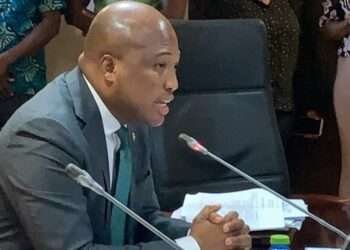In a crucial step towards strengthening Ghana’s fight against corruption, the Ghana Statistical Service (GSS) has launched an Independent Final Evaluation of the Ghana National Anti-Corruption Action Plan (NACAP), covering its implementation from 2015 to 2024.
The evaluation of NACAP is being spearheaded by national consultants, with the Ghana Statistical Service acting as the central coordinating body.
“We are inviting every person in Ghana to participate in this important exercise. Your honest feedback is crucial in helping us evaluate the successes and challenges of NACAP, and in shaping the way forward for Ghana’s anti-corruption efforts.”
Ghana Statistical Service (GSS)
According to GSS, technical support is being provided by the Independent Evaluation Section (IES) of the United Nations Office on Drugs and Crime (UNODC). This rigorous evaluation seeks to assess the progress, effectiveness, and sustainability of NACAP’s efforts in combating corruption over the past decade.
In line with the Citizen Science approach, GSS is encouraging all stakeholders, including individuals, civil society organizations, media, academia, and various public and private sector institutions, to participate in the evaluation by responding to a questionnaire.
The input from citizens will provide valuable insights into the effectiveness of the plan and guide the development of future strategies.
GSS assured that the confidentiality of all responses will be maintained, with data being aggregated and anonymized for evaluation purposes.
The questionnaire can be accessed through the GSS website, CHRAJ’s social media pages, or directly via a QR code link: [http://tiny.cc/gss-nacap](http://tiny.cc/gss-nacap).
NACAP was established in 2015 with the goal of addressing systemic corruption across various sectors in Ghana.
It has been implemented under the supervision of the High-Level Implementation Committee (HiLIC), with additional monitoring by the Monitoring Committee (Monicom) and coordination through the Commission on Human Rights and Administrative Justice (CHRAJ).
Evaluation Methods and Stakeholders
To ensure the evaluation is comprehensive and reflective of NACAP’s impact, GSS is adopting various evaluation methodologies, including document reviews, questionnaire administration, and in-depth interviews.
These tools will help assess the achievement of NACAP’s strategic goals and measure the plan’s broader impact on reducing corruption in Ghana. The evaluation process is inclusive, targeting all NACAP stakeholders.
The GSS revealed that this wide range of stakeholders includes the Executive, Parliament, Judiciary, Public Sector Institutions (such as Ministries, Departments, and Agencies [MDAs] and Metropolitan, Municipal, and District Assemblies [MMDAs]), anti-corruption and law enforcement bodies, the private sector, traditional authorities, religious organizations, and labor unions, among others.
“By collecting input from such a broad spectrum of actors, the evaluation will provide a nuanced understanding of NACAP’s strengths and areas for improvement.
“It will also help ensure that the next iteration of the anti-corruption plan, slated to cover 2025 to 2034, is built on a solid foundation of evidence and practical insight.”
Ghana Statistical Service (GSS)
To ensure the impartiality and independence of the evaluation, several layers of oversight have been built into the process.
The Ghana Statistical Service indicate that as the national statistical office, it has the mandate to ensure that the evaluation is conducted without bias. Additionally, national consultants from academia are providing independent, professional guidance throughout the exercise.
The GSS is optimistic that the findings will contribute to more effective anti-corruption strategies that promote accountability, integrity, and improved resource utilization for the benefit of all Ghanaians.
The Ghana Statistical Service’s call for public participation in this evaluation marks a significant moment in the country’s ongoing battle against corruption.
The public’s role in providing candid feedback is essential in shaping a future where corruption is minimized, and accountability is prioritized.
The GSS encourages all Ghanaians to take part in this important national exercise and contribute to the future of Ghana’s governance.
READ ALSO: South Africa’s Justice Minister Denies Corruption Allegations




















